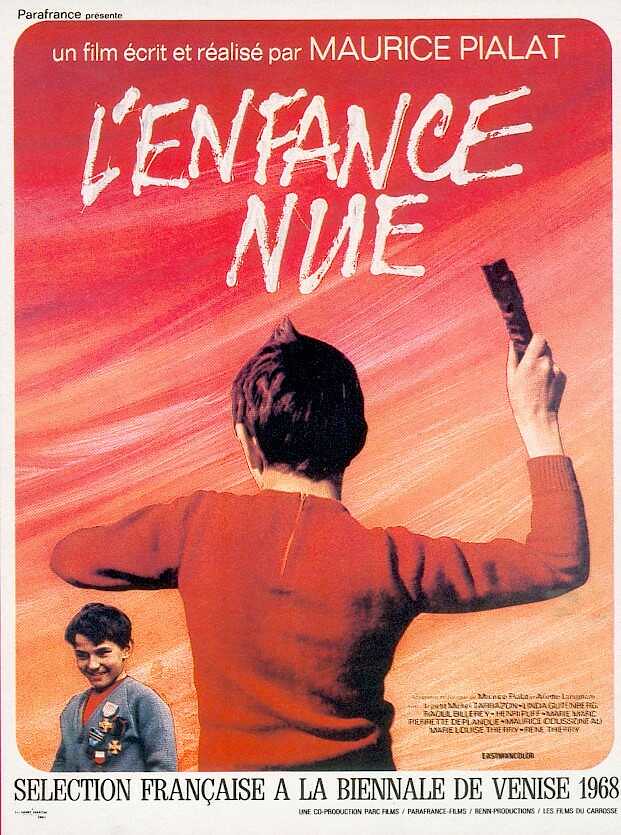
All I really knew about this film going in was that it had insight into a child's troubled upbringing and was kin in spirit to The 400 Blows. At first I was disappointed in the story's lax tone and pacing. It's not that I want every film to be tightly crafted and efficient machines, but I didn't really feel like the style was really doing much here. We stay outside François's head as he continues to be a menace to whoever cares for him, and I think the obtuseness of that, the lack of understanding beyond that of an observer that you have with François, is what made the observational, realist tone came across dry and slow, rather than patient and meditative. Plus, for all the slow advancements (kicked out of a nicer home, François is shuffled off onto an older couple, the Thierrys, who even before they've had to deal with him you can tell are going to put up with his aberrant behavior and love him nonetheless, not because he's special but because they are) it doesn't seem like the kid is learning much. He still has outbursts of violence, vandalism, and theft, and he remains stoic and pensive throughout. Sure, he likes the elderly Nana, and he had a grudging brotherly relationship with Raoul his older foster-brother, but these relationships didn't transform him so much as momentarily distract him from being a menace. Not that they should, mind you; I liked that he wasn't some quick-fixed case of "boy just needs a little love and he becomes an angel," but it still left you with a sense of treading narrative water for a bit.
But I have to admit, in the last twenty minutes, when (SPOILER) Nana dies and François returns to his undistracted hooliganism, even causing a bad car crash by throwing rocks from an overpass, I felt a little more affinity for him. In retrospect, he had changed as the story advanced, but it was so slowly and so patiently that I hadn't registered it entirely. (Plus, full disclosure: I started this film late one night and finished it eight hours later the next morning.) By then the tone and pacing had become familiar to me, the naturalism of what I assume had to be non-actors playing close approximations of themselves (Grandpa looks at the camera about once every fifteen minutes: it's adorable) had been laid down well enough that the very understated drama, most of it offscreen, drove the story forward nicely. There's no big catharsis here, no massive tragedy or uplifting emotional victory. François pays for his actions by being kept under observation for the rest of the year, and his elderly family actually miss the little trouble-maker.
From the agency where he's being kept, François writes them a letter promising to be good so they will let him see them during Christmas, and that's that. He's on a delicate road to being a better kid but he's not fixed. The damage he's done is not undone. Life is messy and you have to be patient with kids who don't understand any better than you do why they do things. (One great, telling sequence was when the director of the orphanage/adoption agency asks older Raoul why he ran away from home. Raoul answers, "Because I didn't do my essay." It feels like a perfectly accurate and honest way of how a kid views things. Small motives. The director pushes, clearly wondering if the timing of his runaway and François's removal from the home is less than coincidental, but Raoul just shrugs. He has nothing to add. He saw a teacher and was embarrassed about his essay. The bigger motives of unrest at home, or confusion over missing a troublesome foster-brother, don't even enter his mind. Just that essay.)
So obviously I came around. I can't say I was in love with it, but I definitely respect it, and see why Criterion would preserve and distribute it. And in the end, maybe it did give me a little bit of insight into the messy way a kid's mind works. It's been a while since I've been one, and I was never quite that angry (though I had my days), but we've all been there, and it's nice to be reminded from time to time what it was like. Messy and terrifying and basically flying blind.

No comments:
Post a Comment